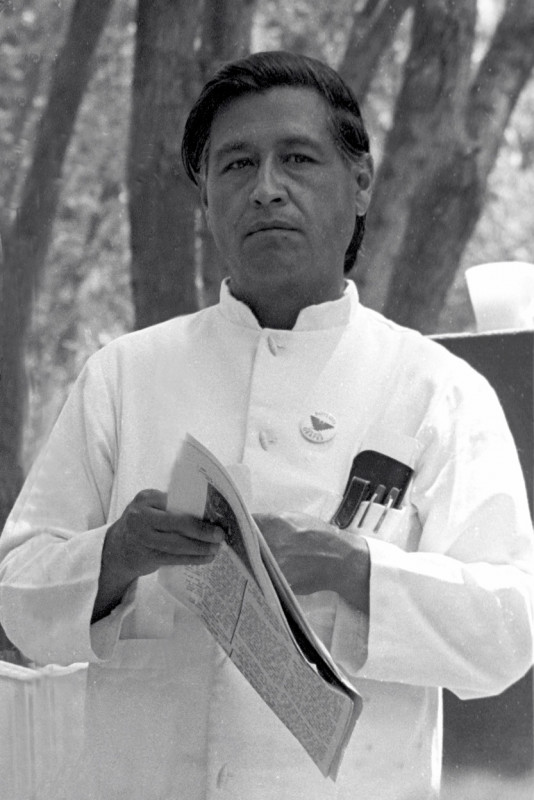Controversies are a part of history. Explore the biggest scandals linked to Cesar Chavez.
Cesar Chavez was a prominent American labor leader and civil rights activist. He co-founded the National Farm Workers Association (NFWA) with Dolores Huerta and Gilbert Padilla. NFWA later merged with the Agricultural Workers Organizing Committee (AWOC) to form the United Farm Workers (UFW) labor union. Chavez's ideology blended left-wing politics with Catholic social teachings, advocating for the rights and fair treatment of farmworkers through nonviolent means.
September 1965: Delano grape strike begins
In September 1965, Filipino American farm workers organized by the Agricultural Workers Organizing Committee (AWOC), initiated the Delano grape strike for higher wages. Cesar Chavez and his largely Mexican American supporters voted to support them. The strike covered a large area, with Chavez dividing the picketers and insisting on non-violence. Police monitored and arrested strikers. The FBI launched an investigation into Chavez and the NFWA.
June 1967: Purge of the Union and Split with El Teatro Campesino
In June 1967, Cesar Chavez launched a purge of the union to remove those he deemed disruptive or disloyal, claiming he wanted to eject members of the Communist Party USA. Some members left in disapproval. Tensions with El Teatro Campesino led to Chavez asking them to disband, after which it split from the union.
February 1968: Chavez begins a fast
In February 1968, Cesar Chavez began a fast to reaffirm his commitment to peaceful protest. He stated he would remain at Forty Acres, which only had a gas station at the time. Members of the union were critical of the fast. After three weeks, doctors urged him to end the fast and he agreed to do so on March 10, inviting Robert Kennedy as the guest of honor.
February 1968: Contempt citation against the union
In February 1968, the Giumarra company obtained a contempt citation against the union, claiming that its members had used threatening and intimidating behavior and had placed roofing nails at the entrances to its ranches.
1968: Full Responsibility
In 1968, Fred Hirsch noted that Cesar Chavez took full responsibility for as much of the operation as he was physically capable of, and that all decisions were made by him.
1972: "Illegals Campaign"
In 1972, Chavez expressed concerns that strikes undertaken by agricultural workers could be undermined by "wetbacks" and "illegal immigrants".
1972: Chavez as Christ-figure
In 1972, John Zerzan described Cesar Chavez as presenting himself as "a Christ-figure sacrificing all for his flock" through his fasts, adding that Chavez took the form of a "messianic leader".
April 1973: Strike in Coachella Valley and Conflict with Teamsters
In April 1973, after the UFW's contract with grape growers in Delano expired, Chavez called a strike in the Coachella Valley, leading to clashes with the Teamsters who sought to replace the UFW.
November 1976: Purge of UFW Staff
In November 1976, Chavez blamed Nick Jones, the UFW's national boycott director, for the Proposition 14 defeat and accused him of conspiracy. Jones resigned, expressing concerns about Chavez's leadership. Chavez fired Joe Smith and ordered interrogations of campaign staff, leading to a McCarthyite atmosphere and press attention within the UFW.
February 1977: UFW Executive Board Visits Synanon
In February 1977, Chavez brought the UFW's executive board to the Synanon compound, participating in "the Game," a therapy system involving harsh criticism. Chavez sought to implement it at La Paz to shape behavior, despite opposition and traumatic experiences among participants. The farmworkers were not informed about the Game.
April 1977: "The Monday Night Massacre"
In April 1977, at a La Paz meeting called "the Monday Night Massacre," Chavez denounced individuals as malcontents or spies. Executive board members verbally abused and ejected them from the community. Chavez later accused Philip Vera Cruz of conspiracy and forced him out.
June 1978: Recites Mao's Poem
In June 1978, Chavez opened a board meeting by reciting a poem by Mao, influenced by Mao's Cultural Revolution. Chavez repeatedly referred to himself as a community organizer rather than as a labor leader and underscored that distinction.
May 1981: Chavez Insists on UFW Infiltration
In May 1981, Chavez called a staff meeting at La Paz, insisting that the UFW was infiltrated by spies and arranged for loyalists to be put on the executive board, which now had no farmworkers.
September 1981: UFW's Fresno Convention and Allegations of Antisemitism
At the UFW's Fresno convention in September 1981, paid representatives nominated their own choices for the board, leading Chavez's supporters to distribute leaflets accusing them of being puppets of "the two Jews," Ganz and Cohen, resulting in allegations of antisemitism against Chavez.
1987: UFW liable for damages
In 1987, the UFW was found liable for $1.7 million in damages to the Maggio company for illegal actions that the union carried out during their 1979 strike.
1988: Jury Verdict Against UFW
In 1988, a jury returned a $5.4 million verdict against the UFW in a legal battle with Bruce Church, who claimed libel and illegal threats to supermarkets selling Red Coach lettuce. This verdict was later thrown out in the appeals court.
January 1989: Hartmire Resigns
Following Chavez's fast, further purges occurred at La Paz, with Chavez accusing more people of being saboteurs. In January 1989, Hartmire was among those pushed out and resigned.
1993: Testimony in Yuma Court
In 1993, Cesar Chavez was called to testify in front of a Yuma court regarding the legal battle between the UFW and Bruce Church. A verdict against the UFW would have been financially devastating.
Mentioned in this timeline

Barack Obama the th U S President - was the...

Bill Clinton the nd U S President - served as...

Martin Luther King Jr was a pivotal leader in the...
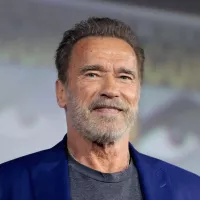
Arnold Schwarzenegger is an Austrian-American actor businessman former politician and...
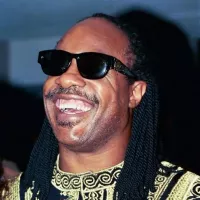
Stevie Wonder born Stevland Hardaway Morris is a highly influential...

Google LLC is a multinational technology company specializing in online...
Trending
34 minutes ago Julian Champagnie shines as a 'Hidden Gem' for the San Antonio Spurs.
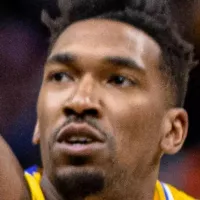
34 minutes ago Malik Monk shines in return, leading Kings' bench after injury recovery.

34 minutes ago Kypson faces de Minaur: ATP Acapulco clash predictions and alternative odds.
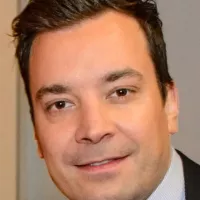
35 minutes ago TWICE to perform on Jimmy Fallon's Tonight Show: How to watch online.

35 minutes ago Kevin Nash Apologizes to Je'Von Evans After Offensive Remark; Raquel Rodriguez Comments

35 minutes ago Lee Ann Womack Returns With New Song; Hannah Harper Covers Her on Idol.
Popular

Jesse Jackson is an American civil rights activist politician and...

Barack Obama the th U S President - was the...

Michael Joseph Jackson the King of Pop was a highly...

Bernie Sanders is a prominent American politician currently serving as...

Susan Rice is an American diplomat and public official prominent...
The Winter Olympic Games a major international multi-sport event held...
